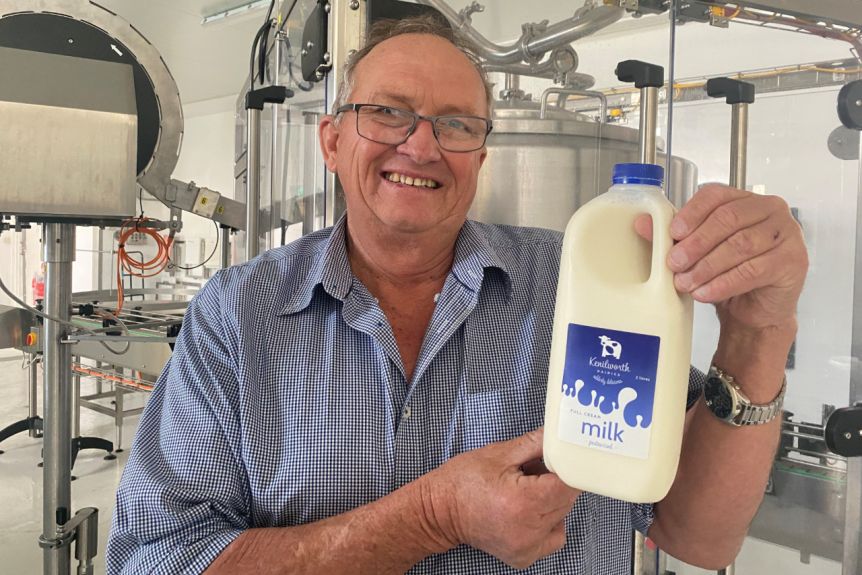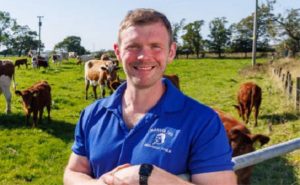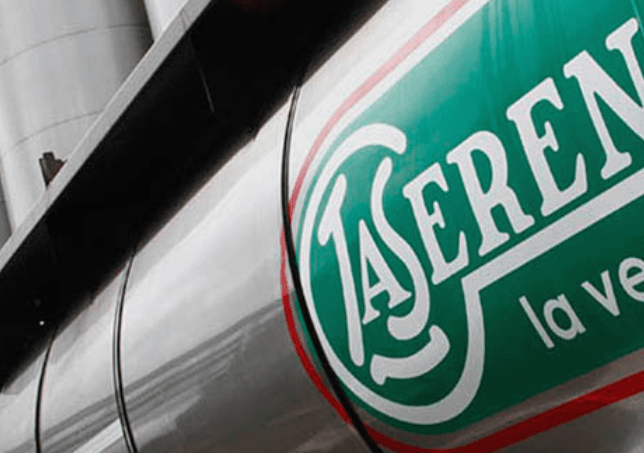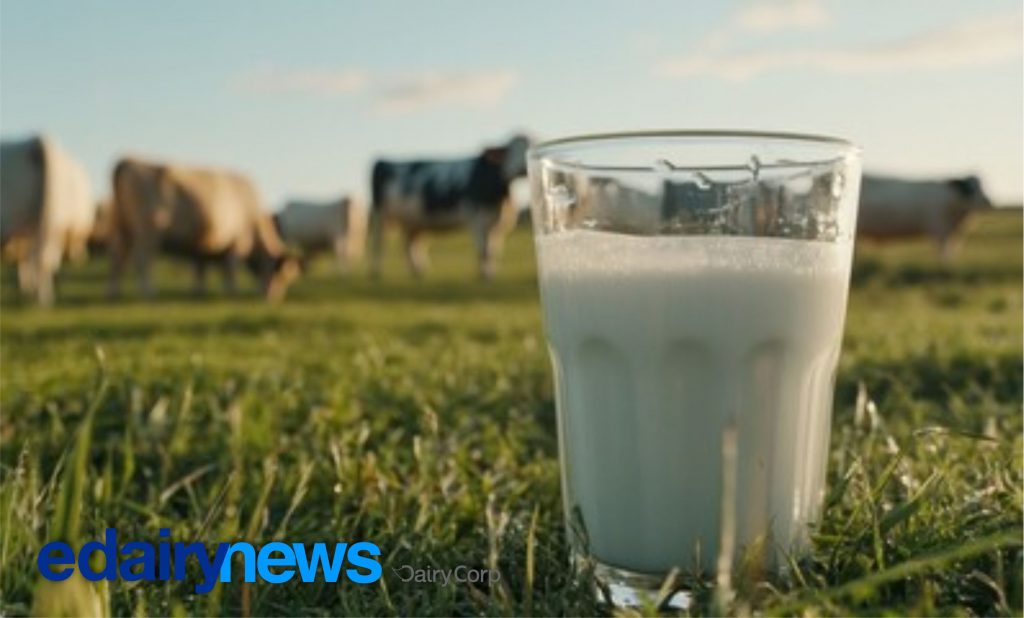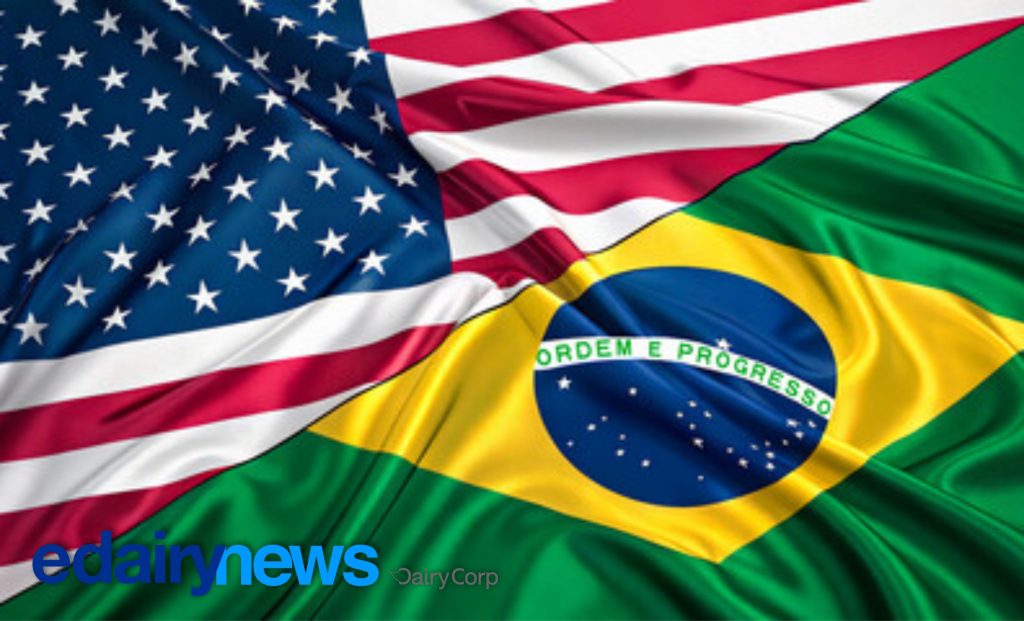Key points:
Kenilworth Dairies will bottle milk for the first time, adding to its wide range of Queensland made products
It will allow two ex-dairy farmers to re-enter the industry
Independent processors are taking on farmers by offering them sustainable milk prices
John Cochrane founded Kenilworth Dairies in June 2017 after buying the former Kraft site from Kenilworth Country Foods.
He has built up a business that sells a range of close to 50 boutique handcrafted cheeses, dairy desserts and yoghurts to major and independent supermarkets around Australia.
The first milk off the new bottling line, that was co-funded by the Queensland Government, will be sold locally in Kenilworth from Friday, before a widespread launch in September.
Mr Cochrane said, in addition to being supplied by three of his family’s farms, the factory would source milk from two ex-dairy farmers at Kenilworth and Skyring Creek who plan to begin production again within three months.
“These are people who didn’t want to go out of the industry (and I probably think there’s a list of them as long as your arm), but we wanted to buy quality milk locally, we want it close, we want it fresh, we want to be able to get it daily,” he said.
“These farmers have a desire to do all of those things for us.”
As a rural auctioneer, Mr Cochrane said it had been hard to witness the number of Queensland dairy farmers drop from 1,500 to less than 300, since deregulation in July 2000.
“To see fully grown men crying as their cows go — forced out of the industry — that is very sad, especially when you know that 600 million litres of milk is being sold in Queensland (a year) and we produce less than 290 million of that.
“The fact that farmers can’t make a living out of it, there’s something fundamentally wrong.
“Times are really tough, especially with COVID-19, and people need to be able to buy what they can buy at the right price. I fully understand that — but then there’s a group of people who are prepared to pay for quality, local fresh milk, so it is almost splitting into two industries.”
Kenilworth Dairies currently employs 50 people, but Mr Cochrane said bottled milk could create 23 new jobs.
Why Queensland’s milk costs more to produce
Queensland Dairyfarmers’ Organisation president, Brian Tessman, said the more outlets for Queensland dairy farmers to sell milk to, the better.
“I think the problem we’ve had is the loss of a lot of little players in the last decade. We lack competition for our milk — and research and development in our (sub-tropical) industry.”
Most of Queensland’s drinking milk is trucked north from the southern states, where the cost of production is lower.
“We’re a fresh milk state, and the requirement is for farmers to produce milk every day of the year, whereas for cheese making down south, seasonal milk gluts can be stored,” Mr Tessman said.
Maleny Dairies owner, Ross Hopper welcomed the news that Kenilworth Dairies would help another two dairy farmers start milking again.
“It’s good for Queensland dairy. We’ve got to be strong together to take on the multi-nationals,” Mr Hopper said.
Eleven local farms currently supply Maleny Dairies processing plant but Mr Hopper said they planned to sign on another two farms soon —and if demand continued to increase — double the number of suppliers within a year.
“We have been blessed by our customers’ support,” he said.
“The more we sell, the more farmers we can take on, the more we can keep on the land. We’ve got to look at the food miles, look at where our food security is. Why not have it locally.”
He said sales to regional Queensland increased 316 per cent in the last year and Maleny Dairies milk now is sold as far north as Cooktown and out to Cloncurry.
Cooloola Milk owner Dick Schroder said it had also been busy at his Dagun processing plant.
“Business has picked up a little, and we’ll be harvesting lucerne and hopefully grain from our farm at Murgon to reduce our costs and give us security and control,” Mr Schroder said.
The factory turned 21 this year and also processed milk for Central Queensland Dairy Fresh and Whitsunday Dairy Fresh.

